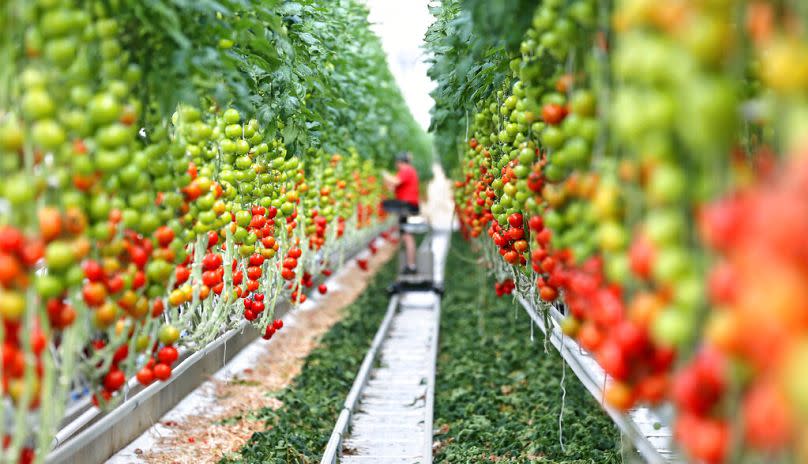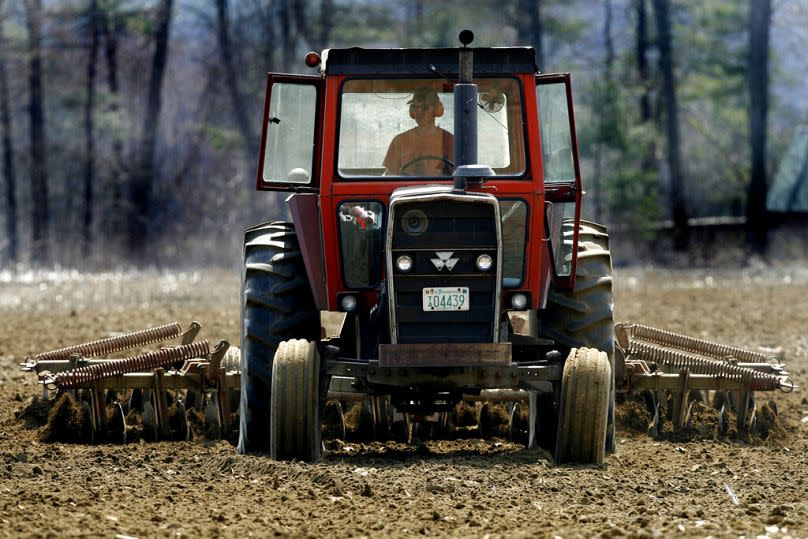The $7 billion (€6.4bn) pledged at the recent COP28 climate talks to transform global food systems was a clear indication that governments and philanthropists recognize the urgency of the climate crisis and its implications for food security.
The funding will go some way towards achieving the goals of the Emirates Declaration on Sustainable Agriculture, Resilient Food Systems and Climate Action, supported by more than 159 countries.
It will also help bridge the investment gap in science and innovation to solve the complex dilemma of sustaining the population without harming the planet.
But investment is only one piece of the puzzle. In talk of changing food systems, the role of seeds is largely missing and this is a serious oversight.
No agricultural input is more influential in building climate resilience than the seed itself.
Seeds also need funding to succeed
Too often, the biggest challenge is scaling up seed innovation and bringing it to millions of smallholder farmers.
Achieving the necessary improvements in crop productivity by 2030 and beyond requires creative and collaborative partnerships that harness the best of both the public and private sectors and scale up existing initiatives.
In promoting the latest climate-threatening crops and ensuring that smallholder farmers have access to these improved seeds, the public and private sectors have complementary roles.
First, deploying agricultural innovation at scale certainly requires significant and sustained funding, which cannot be provided at the levels required by the public or private sector alone.

It is clear that the industry can mobilize additional funding — and often more quickly — that reinforces public investments made by governments and development agencies.
Some estimates believe that the private sector could more than half the $2.5 trillion (€2.29tn) annual funding gap needed to achieve the UN’s Sustainable Development Goals, which include ending hunger.
The private seed sector, for example, invests $10bn (€9.17bn) annually in research and development for more than 80 crops.
Pooled investment can help scale up end-to-end crop breeding programs to rapidly develop new varieties that withstand higher temperatures, water scarcity and new pest threats.
Crop productivity can be increased
Second, the public and private sectors provide different types of expertise and knowledge, which, when shared, can fill the gaps in the innovation pipeline to ensure that seeds are improved and adapted in line with the unique needs of farmers, especially those in developing countries.
Publicly funded research, such as that conducted by CGIAR, plays a critical role in delivering science that serves global goals such as reducing food insecurity and poverty without the burden of commercial pressures.
The private seed sector, on the other hand, can complement and extend this work to ensure last mile delivery by marketing these improved seeds and ensuring steady supply.


Seed companies gather practical insights through regular contact with farmers, retailers, traders and processors. This market intelligence is then translated into targeted breeding targets to address specific climate-related challenges.
Vegetable breeding, for example, is highly fragmented and as a result, there are thousands of innovative tomato varieties on the market, maximizing the chance that farmers will find a variety that thrives in their local conditions.
Since a 2.3% increase in crop productivity in low-income countries by 2050 is one of the targets of the new roadmap produced by the UN Food and Agriculture Organization, the global crop sector must work together to intensify sustainable cultivation and reach a deal. delivery.
We know this is possible. Primary crop yields have increased by 50% worldwide in the last twenty years despite the loss of 130 million hectares of arable land. This is the kind of ambition we had in mind when we launched our newly signed partnership with CGIAR.
Finally, both the public and private sectors have valuable access to key actors, from national research institutes to seed associations, which constitute the value each offers independently.
Give your seed its rightful place
The seed sector can unite the industry on pre-competitive issues to support long-term sustainability.
This is the aim of the Seed Resilience project recently launched in Rwanda, one of the signatories of the Emirates Declaration, with the non-profit Fair Planet.
By testing certified crop varieties, the project aims to identify the latest and best seeds to give Rwandan farmers the best choice and chance for yield improvements despite the challenges of change climate.
Public and non-profit partners will then provide training in good agricultural practices to get the most out of using improved seeds.
Another initiative is the Seed for Food Alliance, a public-private-civil partnership, which will mobilize activities for inclusive seed systems.
Transforming food systems around the world requires sustained funding to ensure that no one is left behind in the race to net zero but all parties must embrace new ways of working.
The next climate talks will take place in less than a year. Until then, policy makers must give seed its rightful place in the discussion of food system transformation and climate action.
And by working more closely together, the public and private seed sector can open up new creative solutions that could, in fact, achieve the goal of ending hunger against all odds.
Michael Keller serves as Secretary General of the International Seed Federation (ISF).
At Euronews, we believe that every opinion matters. Contact us at view@euronews.com to send pitches or submissions and be part of the conversation.